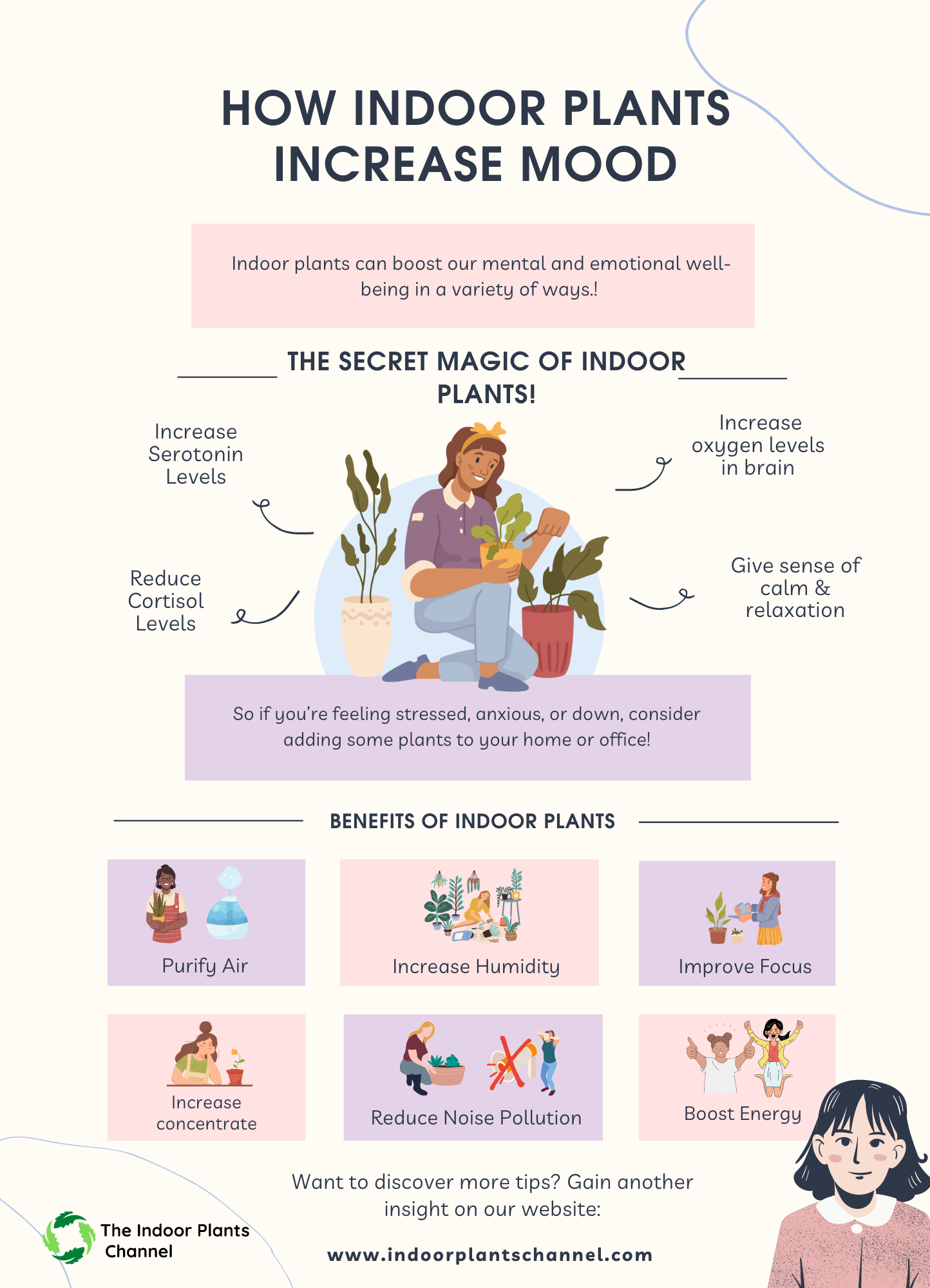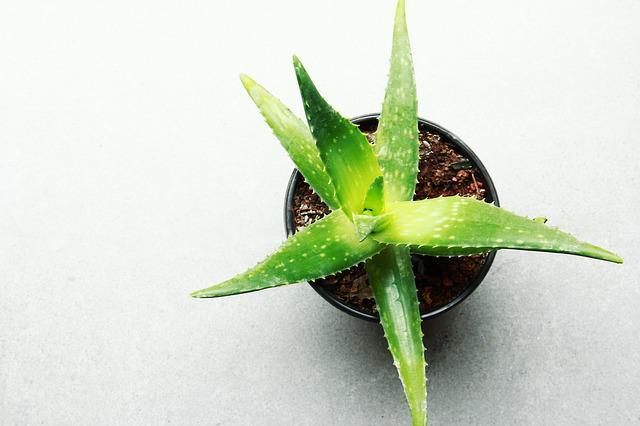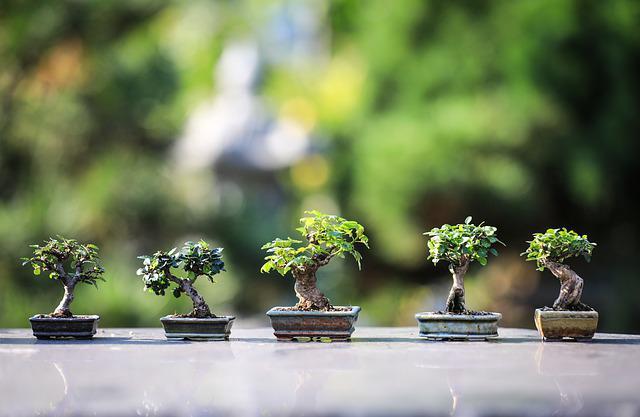Indoor plants are becoming increasingly popular as people look for ways to boost their mood and well-being. Studies have shown that being around plants can have a positive effect on our mood and mental health. One study found that office workers who had access to plants and nature had lower levels of stress and anxiety than those who did not.
“The Science Behind Indoor Plants And Mood” “The best and most beautiful things in the world cannot be seen or even heard, but must be felt with the heart.” -Helen Keller

Credit: Pexels
Another study found that hospital patients who had plants in their room had shorter hospital stays and required less pain medication than those who did not have plants.
So, what is it about plants that can have such a positive effect on our mood and health?
- One theory is that it has to do with the color green. Green is a restful color that can help to reduce stress and anxiety. Seeing green can also boost our mood and make us feel more positive.
- Another theory is that plants help us to connect with nature, which can have a calming and grounding effect. Being around plants can help us to feel more connected to the natural world, which can reduce stress and promote wellbeing.
- Whatever the reason, there is no doubt that plants can have a positive effect on our mood and health. Therefore, consider adding some plants to your home or office.
The Science Of Indoor Plants And Mood: How Plants Can Affect Our Moods
It’s no secret that plants can have a positive effect on our moods. Numerous studies have shown that indoor plants can boost our mental and emotional well-being in a variety of ways.

Credit: Pexels
One of the most well-known ways that plants can improve our mood is by increasing levels of serotonin. Serotonin is a neurotransmitter that plays a role in regulating our mood, sleep, and appetite. When levels of serotonin are low, we may feel depressed, anxious, or irritable. Conversely, when levels of serotonin are high, we tend to feel happier and more relaxed.
- So how do plants increase serotonin levels? Well, it all has to do with a compound called phytochemicals. Phytochemicals are chemicals that occur naturally in plants. When we breathe in phytochemicals, they interact with our nervous system to produce a variety of effects, one of which is an increase in serotonin levels.
- In addition to increasing serotonin levels, plants can also improve our mood by reducing levels of stress hormones like cortisol. Cortisol is often referred to as the “stress hormone” because it’s released in response to stress. When levels of cortisol are high, we may feel anxious, overwhelmed, or even angry. However, when levels of cortisol are low, we tend to feel calmer and more relaxed.
So how do plants reduce cortisol levels? Once again, it has to do with phytochemicals. When we breathe in phytochemicals, they interact with our nervous system to decrease the production of cortisol.
In addition to increasing serotonin levels and reducing cortisol levels, plants can also improve our mood by increasing levels of oxygen in the brain. Oxygen is essential for proper brain function. When levels of oxygen are low, we may feel tired, foggy-headed, or even dizzy. However, when levels of oxygen are high, we tend to feel more alert and focused.
- Plants increase oxygen level via phytochemicals. When we breathe in phytochemicals, they interact with our respiratory system to increase the amount of oxygen that we breathe in.
- In addition to increasing serotonin levels, reducing cortisol levels, and increasing oxygen levels in the brain, plants can also improve our mood by providing us with a sense of calm and relaxation. Numerous studies have shown that simply being around plants can help us to feel more calm and relaxed.
In summary, plants can improve our mood in a variety of ways. They can increase serotonin levels, reduce cortisol levels, increase oxygen levels in the brain, and provide us with a sense of calm and relaxation.

So if you’re feeling stressed, anxious, or down, consider adding some plants to your home or office.
The Science Of Color: How Different Colors Of Plants Can Have Different Effects On Our Emotions
It’s long been known that different colors can have different effects on our emotions.
- Red is often associated with feelings of anger or excitement.
- Blue is often associated with feelings of calmness or relaxation.
But what about the colors of plants? Can they have similar effects on our emotions?
According to some studies, they can. For example, one study found that people who were shown pictures of green plants felt more positive emotions than those who were shown pictures of other colors.
Another study found that people who were shown pictures of red flowers felt more passionate and excited than those who were shown pictures of white flowers.
So, if you’re looking to boost your mood, consider adding some plants of different colors to your home or office.
The Benefits Of Indoor Plants: Why Having Plants In Our Homes Is Good For Us
Indoor plants have many benefits that can improve our mood and wellbeing. They can purify the air, increase humidity, and even help to reduce noise pollution. Plants can also help us to focus and concentrate, and boost our energy levels.

Credit: Pexels
- One of the most important benefits of indoor plants is that they can help to purify the air. They do this by absorbing harmful toxins and chemicals, and releasing clean oxygen back into the atmosphere. This is especially important in today’s world, where the air is often polluted with harmful chemicals from things like cleaning products, paint, and even our furniture.
- Another benefit of indoor plants is that they can help to increase humidity. This is important because dry air can cause a number of health problems, such as dry skin, nosebleeds, and respiratory problems. Plants release water vapor into the air, which helps to increase humidity and make the air more comfortable to breathe.
- Indoor plants can also help to reduce noise pollution. This is because they can absorb sound waves and reduce the overall noise level in a room. This can be a great benefit if you live in a noisy area, or if you work in a loud office.
- Finally, plants can also help us to focus and concentrate, and boost our energy levels. This is because they provide us with fresh oxygen to breathe, which can help to improve our cognitive function. Plants can also help to reduce stress and anxiety, and create a more positive and relaxing environment.
The Best Indoor Plants For Improving Mood: Which Plants Are Most Effective At Lifting Our Spirits?
There are many indoor plants that can improve your mood. Some of the best plants for improving mood are:
1. Aloe Vera
Aloe Vera is a succulent plant that is known for its healing properties. It can help to improve your mood by reducing stress and anxiety.

2. Spider Plant
Spider plants are known for their ability to purify the air. They can also help to improve your mood by lifting your spirits and reducing stress.

3. Peace Lily
Peace lilies are known for their ability to purify the air and to create a feeling of calm. They can help to improve your mood by reducing stress and anxiety.

4. Snake Plant
Snake plants are known for their ability to purify the air and to create a feeling of calm. They can help to improve your mood by reducing stress and anxiety.

5. Bonsai Tree
Bonsai trees are known for their ability to create a feeling of calm. They can help to improve your mood by reducing stress and anxiety.

How To Use Indoor Plants To Improve Your Mood: Some Simple Tips For Getting The Most Out Of Your Plants
Indoor plants can do more than just look pretty; they can also boost your mood. Here are some simple tips for getting the most out of your plants:
- Choose the right plant. Not all plants are created equal when it comes to mood-boosting. Some of the best plants for improving your mood include lavender, jasmine, and gerbera daisies.
- Place your plants strategically. Put your plants in places where you’ll see them often, like by your bed or desk. The more you see them, the more they’ll lift your spirits.
- Take care of your plants. Showing your plants some love will help you feel more connected to them and that connection can help improve your mood. Water them, give them some fertilizer, and make sure they are getting enough light.
- Talk to your plants. Studies have shown that talking to your plants can help them grow better and it can also help you feel better. So go ahead and tell your plants how your day went.
- Enjoy the benefits. Spending time with your plants can help reduce stress, anxiety, and fatigue. So take a few minutes each day to appreciate your indoor plants and reap the mood-boosting benefits.
How Looking After Plants Can Help You To Feel Calmer And More Relaxed
It’s no secret that taking care of plants can have a calming effect on our mood. Numerous studies have shown that interacting with nature, including caring for plants, can help reduce stress and anxiety levels.
But why exactly does caring for plants have such a positive effect on our mental health? Let’s take a closer look at the science behind it.

For starters, caring for plants requires us to focus on the present moment. We can’t be worrying about the future or dwelling on the past if we’re busy watering the plants or trimming their leaves. This focus on the present moment is a form of mindfulness, which has been shown to help reduce stress and anxiety.
In addition, caring for plants gives us a sense of responsibility and accomplishment. When we see our plants thriving because of the care we’ve given them, it can boost our self-esteem and sense of worth.
Finally, simply being around plants can have a positive effect on our mood. Plants release negative ions, which have been shown to improve our mood and increase feelings of relaxation.
The Role Of Nature In Mood: How Being In Nature Can Help Us Feel Better
It is no secret that being in nature can have a calming and relaxing effect on us. Numerous studies have shown that exposure to nature can help reduce stress, anxiety, and depression, and can also improve our mood and overall sense of well-being.

Credit: Pexels
So what is it about nature that has such a positive effect on our mood? There are a few different theories.
- Nature provides a much-needed break from the hustle and bustle of daily life, and can help us to feel more connected to the world around us. Being in nature can also help us to appreciate the simple things in life, and can give us a sense of perspective.
- Another theory is that nature provides us with a sense of awe and wonder. When we see the beauty of a sunset or the vastness of a mountain range, it can help us to feel small and insignificant in the best possible way. This can help us to feel more connected to the world around us and can give us a sense of peace and tranquility.
So next time you’re feeling stressed, anxious, or down, try spending some time in nature. Take a walk in the park, go for a hike in the woods, or simply sit in your backyard and take in the sights and sounds of the natural world. You may just find that it does wonders for your mood.
The Power Of Scent: How The Smell Of Plants Can Affect Our Moods
It’s long been known that certain smells can affect our moods. For example, the smell of lavender is often used to help people relax. But did you know that the smell of plants can also have an effect on our moods?
Studies have shown that the smell of certain plants can help to boost our moods and improve our mental well-being. For example, the smell of jasmine has been shown to increase feelings of happiness and well-being, while the smell of lemon has been shown to boost energy levels and improve concentration.
Frequently Asked Questions
-
What is the science behind indoor plants and mood?
Research has shown that having indoor plants can improve your mood and mental well-being. One study found that office workers who had plants in their workspace had lower levels of stress and felt more productive than those who didn’t have plants.
It’s thought that plants can help improve mood by increasing levels of serotonin, a chemical in the brain that’s associated with happiness and well-being. Plants can also help to improve indoor air quality by filtering out harmful toxins and providing fresh oxygen.
-
Do all plants have the same effect on mood?
Not all plants are equally effective at improving mood. Some of the best plants for improving mood include: Aloe vera, Spider plant, Peace lily, etc
-
How many plants do I need to improve my mood?
The number of plants you need to improve your mood will depend on the size of your space and the type of plants you choose. Generally, it’s best to start with a few small plants and increase the number as you see how they impact your mood.
-
Where should I put my plants to improve my mood?
The best place to put your plants will depend on the size and type of plant you have. Some plants do better in direct sunlight, while others prefer shady areas. If you’re not sure where to put your plant, ask a nursery worker or do some research to find the best location for your plant.
-
Can I improve my mood with fake plants?
While fake plants can’t improve air quality or produce oxygen, research has shown that they can still have a positive effect on mood. One study found that people who had fake plants in their offices had lower levels of stress and felt more productive than those who didn’t have any plants at all.
-
Do I need to take care of my plants to improve my mood?
While taking care of your plants can be therapeutic in itself, you don’t need to worry about having a green thumb to see the benefits. Research has shown that even just looking at plants can improve mood. So if you’re not sure how to take care of a plant, don’t let that stop you from reaping the benefits.
Bonus Tips
- Place indoor plants in strategic locations around your home or office to boost your mood and concentration.
- Study the science behind how indoor plants improve mood and cognitive function to better understand the benefits.
- Use indoor plants to create a natural and inviting atmosphere in your home or office space.
- Use indoor plants to purify the air and improve the quality of your indoor environment.
- Get creative with your indoor plants and experiment with different ways to display them or use them in your decor.
- Choose plants that are known to have positive effects on mood and wellbeing
Conclusion
Indoor plants are not only aesthetically pleasing but they also have been proven to boost mood and create a more positive environment. The science behind this is that plants release oxygen and absorb carbon dioxide, which helps to improve air quality and creates a more refreshing atmosphere. In addition, plants have been shown to reduce stress levels and promote relaxation. So if you’re looking for a way to brighten up your home and your mood, consider adding some indoor plants!
Michelle Wilde
Related posts
1 Comment
Leave a Reply Cancel reply
![]()
About Michelle Wilde
Michelle Wilde is a stay-at-home mom and avid plant lover. Armed with a post-graduate degree in Computer Science (no kidding!), she loves researching plants and landscapes. When she is not caring for her 4 kids, she spends time on her passion for plants. She blogs at www.indoorplantschannel.com, the trusted source for indoor plants.
Learn more
Subscribe
* You will receive the latest posts and updates about indoor plants!
Search
Recent Posts
Categories
- Beginner Guides (10)
- FAQ (206)
- General (2)
- How-To Guides (212)
- Indoor Plants (214)
- Pest Management (2)
- Plant Problem Solutions (4)
- Seasonal Growing (2)
- Specialized Environments (2)
- Specific Plant Care (3)
- Technical Growing (2)

[…] are a lot of different indoor plants that can help to improve your mood. Some of the best ones are also the shortest, so you don’t have to worry about them taking up too […]